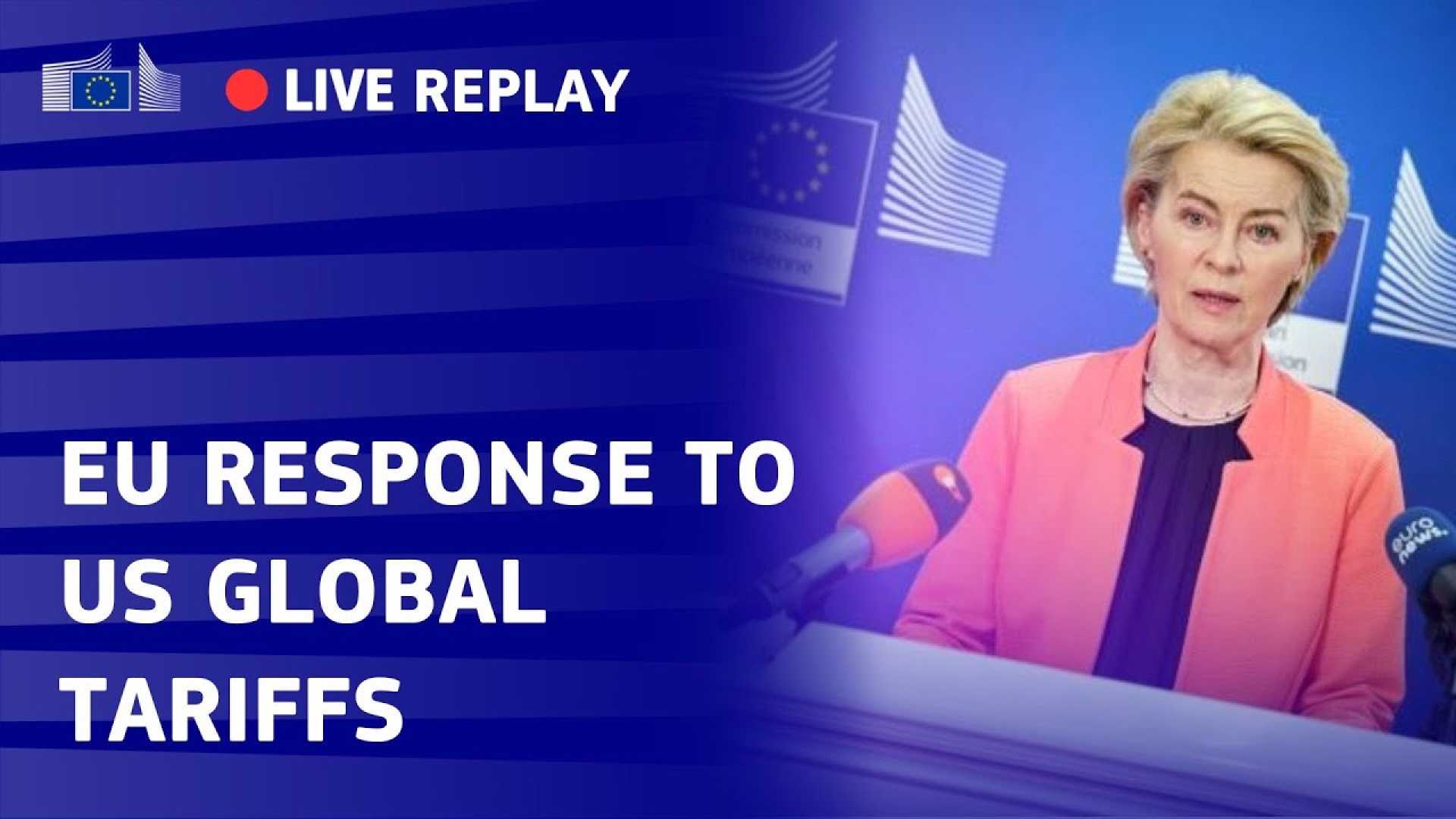Business
EU Proposes $107 Billion in Tariffs on U.S. Imports Amid Trade Tensions

BRUSSELS, Belgium – The European Commission on May 8 announced plans to impose countermeasures on up to 95 billion euros ($107.2 billion) of U.S. imports unless negotiations with Washington lead to the removal of tariffs implemented by former President Donald Trump.
The proposed tariffs would target a range of U.S. products, including wine, bourbon, other spirits, fish, aircraft, vehicles, car parts, chemicals, electrical equipment, health products, and machinery. This action represents the EU’s response to U.S. import taxes on cars and Trump’s broader trade measures.
The Commission, which coordinates trade policy for the 27-nation EU, has initiated a public consultation running until June 10. During this period, EU member states and businesses can provide feedback on the proposed counter-tariffs. A final decision regarding these tariffs is expected to be made afterward.
“The EU remains fully committed to finding negotiated outcomes with the U.S.,” Commission President Ursula von der Leyen stated. “At the same time, we continue preparing for all possibilities.”
Today’s announcement coincided with Trump’s announcement of a trade deal between the United States and Britain, a move that aims to mitigate the impact of Trump’s tariffs on significant trade partners.
Currently, the EU is subject to a 25% tariff on imports of cars and a 10% tariff on almost all other goods from the U.S., which could potentially rise to 20% after a temporary exemption expires on July 8.
The EU has previously expressed a preference for negotiating a solution to avoid tit-for-tat tariffs, but is preparing for retaliatory measures if no agreement is reached by July.
In April, the EU approved tariffs of 25% on U.S. imports valued at 21 billion euros, including maize, wheat, motorcycles, and clothing. These were introduced in response to U.S. metals tariffs and were announced before being put into effect following Trump’s temporary pause.
The Commission underscored that U.S. tariffs currently apply to 380 billion euros, or about 70%, of the EU’s goods trade with the U.S. This proportion could increase to 97% if further U.S. investigations into pharmaceuticals, semiconductors, critical minerals, and trucks go ahead. However, the EU has not included pharmaceuticals or semiconductors in its current proposal.
Businesses affected by these proposed tariffs are encouraged to voice their opinions, as seen during a March consultation, which received 660 responses. BMW, the largest auto exporter in the U.S. by value, did not comment on the EU’s proposals but emphasized the importance of both parties seeking common ground based on free trade.
German manufacturers like Mercedes-Benz produced over 844,000 vehicles in the U.S. last year, with about half of those exported. The EU spirits association spiritsEUROPE highlighted that the tariff-free spirits trade between the EU and U.S. has existed since 1997 and urged negotiators to accelerate discussions before early July.
EU officials claim the proposed countermeasures do not cover the full volume of U.S. tariffs because EU imports are significantly less than its exports to the U.S., at 335 billion euros in 2024 compared to 532 billion euros of exports. Officials state they aim to create a proportionate response that does not escalate tensions.
Additionally, the Commission is contemplating export restrictions on 4.4 billion euros worth of steel scrap and chemical products to the U.S., as there are concerns about these materials being sold outside the EU.
The Commission also plans to file a complaint with the World Trade Organization regarding the U.S. tariffs, which begins with consultations between the two parties.
U.S. Vice President JD Vance mentioned that discussions with Europe are ongoing and that Washington is urging the EU to lower its tariffs and regulatory barriers to improve trade relations.












